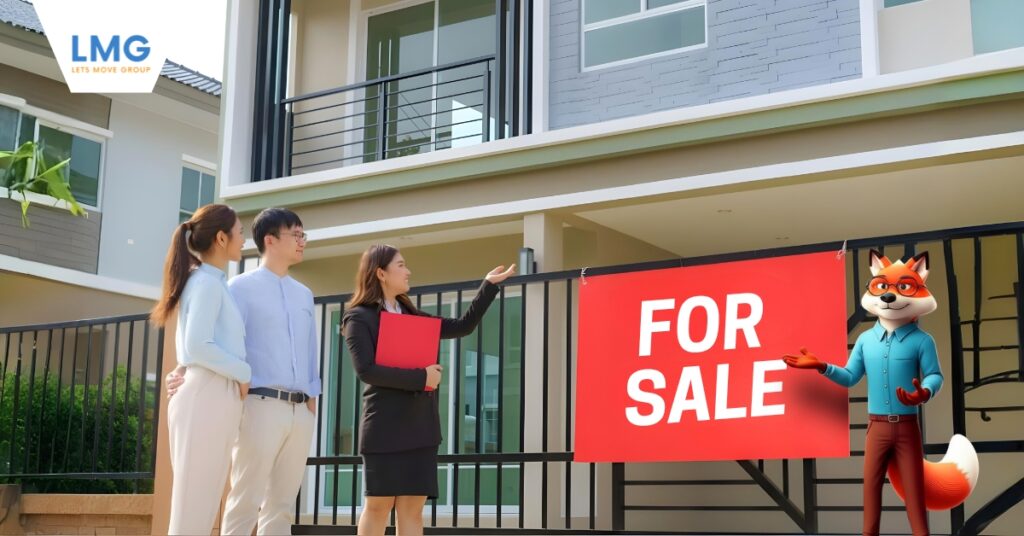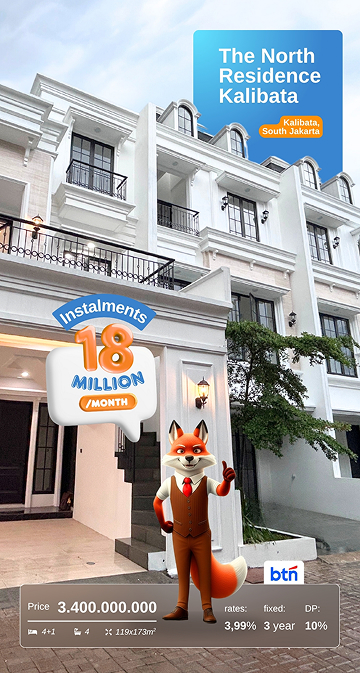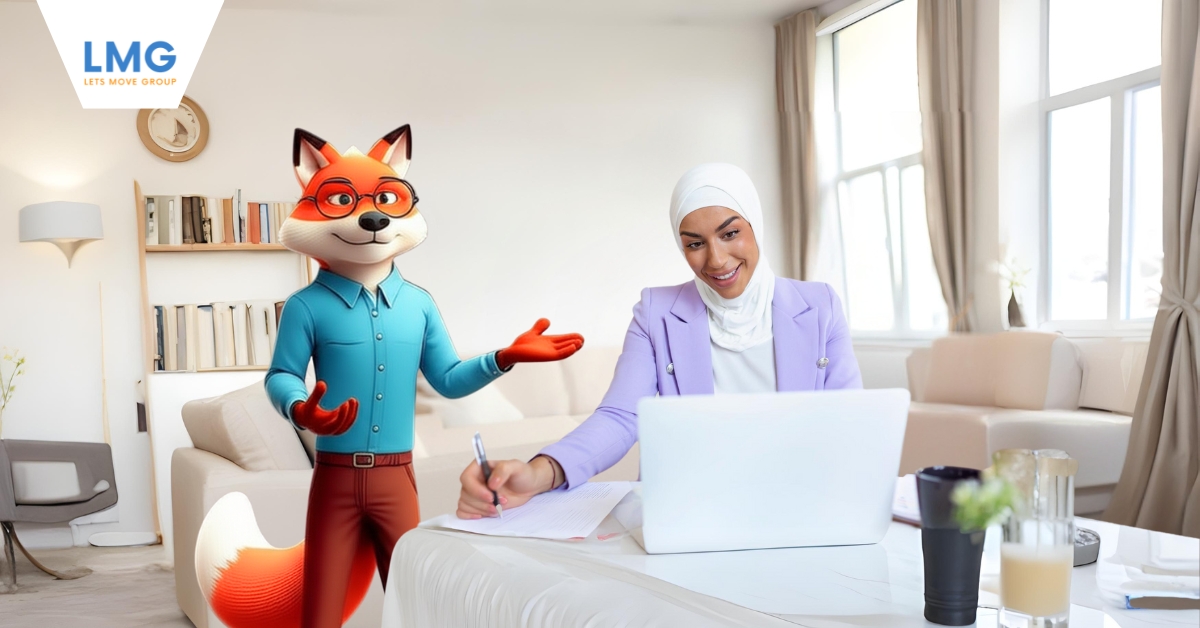Buying a second-hand home can be a wise investment, particularly for those looking to balance affordability with strategic location. Unlike brand-new properties, second-hand homes often come with lower price tags, making them appealing to first-time buyers or those seeking to upgrade without overstretching their budget.
Additionally, these homes are typically situated in more mature neighbourhoods, where infrastructure such as roads, schools, and healthcare facilities are already well established.
A Guide to Second-hand Home Mortgage
However, financing a second-hand home purchase involves a distinct set of considerations compared to new developments. Prospective buyers must understand the specific mortgage requirements, documentation, and property evaluations involved.
With the right knowledge and guidance, securing a second-hand home mortgage can be a straightforward process that leads to long-term stability and satisfaction.
What is a Second-hand Home Mortgage?
A second-hand home, also known as a pre-owned or resale property, is a residential unit that has previously been lived in by at least one owner. These homes vary widely in age, design, and condition from well-maintained properties requiring minimal upgrades to older buildings in need of significant renovation. Because of this variability, buyers have a broader selection to match both budget and personal preferences.
One of the advantages of second-hand homes is that they tend to be more spacious than many new developments, especially those built several decades ago. Properties in older neighbourhoods often feature generous land plots and larger living areas, offering more flexibility for families or future expansions.
Buyers may also appreciate the unique character and architecture that such homes provide, features that are often missing from mass-produced modern housing.
Can You Get a Mortgage for a Second-hand Home?
Yes, obtaining a mortgage for a second-hand home is entirely possible and is a common practice in Indonesia. Many banks and financial institutions offer mortgage products specifically tailored for pre-owned homes, allowing buyers to spread the cost over several years.
Whether the property is in a bustling city or a quiet rural village, a second-hand home mortgage can help make the purchase more financially accessible.
That said, the mortgage application process for second-hand homes can involve more scrutiny than that of new builds. Lenders often conduct a more detailed appraisal to assess the current condition and market value of the property. This is done to ensure the home meets the bank’s lending standards and to minimise financial risk.
In some cases, buyers may be required to present additional documents or repair plans if the property is in less-than-ideal condition. For this reason, working with a trusted advisor or mortgage consultant can greatly streamline the process and reduce complications.
Benefits of Buying a Second-hand Home
Check out the benefits of owning a second-hand home.
1. More Affordable Prices
Second-hand homes are usually priced lower than new homes in the same location, making them a more economical choice. The older the house, the more room there may be for negotiation.
2. Strategic Locations
Used homes are often located in more established areas, offering easier access to workplaces, schools, and public transport. This strategic positioning is a significant benefit for daily convenience.
3. Unique Architectural Designs
Many second-hand homes feature unique designs and characters, including classic architectural elements that are difficult to find in newer developments.
4. Well-organised Layouts
Older houses tend to have more thoughtfully divided spaces, providing a practical and liveable layout that can be adapted to personal needs.
5. Negotiable Pricing
Unlike new housing developments where prices are fixed by the developer, second-hand homes offer room for negotiation, giving buyers the chance to find a deal that fits their budget. It is also more flexible because buyers can meet with the owner and negotiate. When the desired price is reached, just apply for a mortgage with the bank.Check out what are the benefits of owning a second home.
Requirements for a Second-hand Home Mortgage
To apply for a second-hand home mortgage, the following personal and financial documents are generally required:
Personal Documents:
- Identity Card (KTP)
- Family Card (KK)
- NPWP (Tax ID Number)
- Marriage Certificate (if applicable)
- Recent salary slips (last 3 months)
- Recent bank statements (last 3 months)
- 4x6 cm photo
- Employment letter
- Professionals: Practice licence and employment certificate
- Self-employed: Business licence and financial statements for the last 2 years
Property Documents:
Copy of land/home ownership certificate (SHM)
IMB (Building Permit)
Proof of recent Land and Building Tax (PBB) payment
Sale and purchase agreement signed with stamp duty
General Criteria:
Indonesian citizenship
Permanent employment with at least 2 years of service
Aged 21 or older (or married), with a maximum of 55 years at loan maturity
Clean BI Checking (not on the national blacklist)
Ability to provide a down payment and cover additional mortgage-related costs
How to Apply for a Second-hand Home Mortgage
1. Prepare Required Documents
Ensure all personal, employment, and property-related documents are collected and completed for the mortgage application process.
2. Choose a Suitable Bank
Not all banks offer mortgages for second-hand properties. Compare available options to find a bank that supports this type of loan and suits your financial capability.
3. Inspect the Property Thoroughly
Evaluate the physical condition of the home, checking for any structural issues, leaks, or necessary repairs. This step is crucial to avoid unexpected costs after purchase.
4. Choose a Property Within Budget
Ensure the house price aligns with your financial situation. As a guideline, mortgage payments should not exceed 30–40% of your monthly income.
5. Prepare a Down Payment
Banks usually require a down payment between 10% to 30% of the home’s value. A larger deposit can increase your chances of approval.
6. Bank Appraisal
The bank will conduct an independent appraisal to verify the fair market value of the property. This step is essential before the loan can be approved.
7. Sign the Loan Agreement
Once approved, you will sign a Letter of Credit Agreement (SPK), which outlines the loan terms, interest rates, penalties, and repayment obligations.
8. Finalise the Mortgage Contract
The final credit agreement is signed in the presence of a notary, the seller, and the bank. This contract finalises the mortgage process and confirms the property transfer.
Estimated Processing Time for a Second-hand Home Mortgage
Each stage of the mortgage application may vary, but the typical timeline is as follows:
- Document Preparation: 1–2 weeks
- Submission and Bank Review: 2–4 weeks
- Appraisal and Offer: 1–2 weeks
- Approval: 2–4 weeks
- The signing of Credit Agreement: 1–2 weeks
These timeframes may differ based on the bank’s internal policies and the speed at which documents are submitted.
Tips for Buying a Second-hand Home
1. Check Legal Documents
Ensure all property documents are complete and legally verified. If the house was inherited, make sure the inheritance documents are in order and properly transferred.
2. Verify the Surrounding Area
Inspect the location for safety, drainage, and flood risk. Prefer properties in areas with proper infrastructure and minimal environmental risks.
3. Talk to Local Residents
Gather information from nearby residents about the house’s history, neighbourhood safety, and utility reliability. Their insights can be invaluable.
4. Review Renovation History
If the home has undergone renovations, ask for documentation and details about the work done. This helps in assessing the property’s long-term durability and value.
Second-hand Home Mortgage with Lets Move Group
Applying for a mortgage can feel complex, especially for first-time buyers. With many banks offering different requirements and timelines, it's important to have a trusted advisor by your side. The Lets Move Group offers tailored assistance to ensure your mortgage application is processed smoothly and in accordance with all legal requirements.
Our experienced consultants will guide you from initial document preparation to the final agreement signing, providing clarity and peace of mind throughout the process. Whether you're purchasing a home in a city or a quiet village, our team is ready to help you every step of the way. Contact Lets Move Group today! Contact Lets Move Group today!














